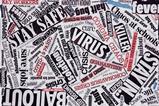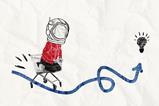How to create baseline assessments which give realistic results
It is the start of the academic year. You have a new class in front of you. Recalling the famous words of David Ausubel, you have prepared a baseline assessment to work out what your students already know: ‘The most important single factor influencing learning is what the learner already knows. Ascertain this and teach him accordingly.’
It is common practice to set a baseline assessment at the start of the year to find out what your students already know – and what they don’t. The aim is to spend less class time teaching content that your students are already confident with and spend more time filling gaps and moving forwards. It is a sensible approach, but it often doesn’t work.
Why don’t baseline assessments usually work?
Why don’t they work?
You take in the assessments and mark them. Your heart sinks. The majority of your class failed to answer even simple questions. Didn’t the teacher last year teach them anything?
This is really common. The classes you taught last year are probably also performing badly in the baseline assessments their new teachers are setting. It’s not because of ineffective teaching – it’s because of an effect called transfer.
Transfer is the aim of education. The hope is that students take what they have learned in class and apply it. But it’s really hard. As soon as you change the context, even slightly, pupils struggle to recall and apply their learning. Even if you set questions that were identical to the questions they answered last year, your pupils will struggle because they are in a different room, with a different seating plan and a different teacher. And you probably haven’t used exactly the same questions.
Does this matter? Well, yes, it matters because your baseline assessment has given you a falsely negative picture. You can do better.
How to assess prior knowledge effectively
The first part is to reheat your students’ knowledge before they carry out the assessment. Start by finding out exactly what they were taught. You could look in their books, talk to their previous teacher or check the long-term plan. If they have just arrived in year 7, can you ask their year 6 teacher?

Next, find out how they were taught. Show them the same slide or equipment to prompt their memories. Ask them to turn to their partner and say what they remember about each prompt (and take a moment to listen in). Use your whole class questioning and other techniques to prompt further recall.
Thirdly, did their previous teacher use retrieval practice questions? Can you ask the same questions they were asked? Let them do a think-pair-share using these questions. Challenge them to answer as many as they can solo, then with a partner – you’ll want to look over their shoulders as they write and talk. When they’re done, share answers through cold-call questioning.
Next, find out how they were taught. Show them the same slide or equipment to prompt their memories. Ask them to turn to their partner and say what they remember about each prompt (and take a moment to listen in). Use your whole class questioning and other techniques (rsc.li/43DRnPJ) to prompt further recall.
Thirdly, did their previous teacher use retrieval practice (rsc.li/43tGyjy) questions? Can you ask the same questions they were asked? Let them do a think-pair-share using these questions. Challenge them to answer as many as they can solo, then with a partner – you’ll want to look over their shoulders as they write and talk. When they’re done, share answers through cold-call questioning.
Once their prior learning has been reactivated, your students are in a much stronger position to show you what they know
Lastly, can you get their previous teacher to ‘hand over’ the pupils? Ask your colleague to help the students show what they can do.
Once their prior learning has been reactivated, your students are in a much stronger position to show you what they know. But before you begin, it is worth checking the questions. You might find that the context of a question is different to the context they were taught. For example, if you want to know what your students know about changes of state and they were taught using candle wax as the concrete example, don’t ask them questions about lava yet. If you want to ascertain what they know about changes of state, make sure the context is familiar to them.
So now your students are ready to complete the baseline assessment. You will find out what your learners already know and can teach them accordingly throughout the year. You’re off to a good start.
Ben Rogers














No comments yet